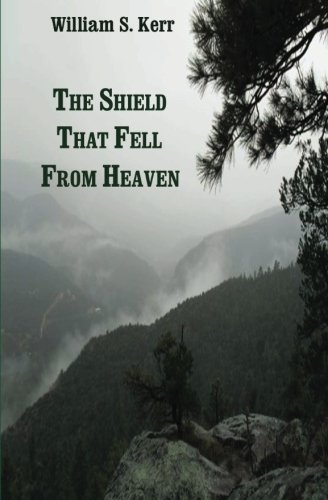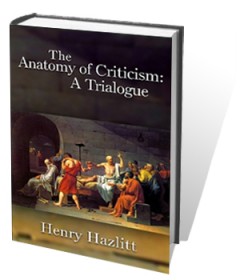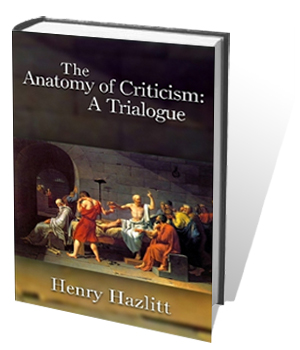
 J. Edgar, the new film directed by Clint Eastwood and starring Leonardo DiCaprio, is making the news for dealing frankly with the decades old rumors concerning Hoover’s private life. But that’s not what makes the film immensely valuable. Its finest contributions are its portrait of the psycho-pathologies of the powerful and its chronicle of the step-by-step rise of the American police state from the interwar years through the first Nixon term.
J. Edgar, the new film directed by Clint Eastwood and starring Leonardo DiCaprio, is making the news for dealing frankly with the decades old rumors concerning Hoover’s private life. But that’s not what makes the film immensely valuable. Its finest contributions are its portrait of the psycho-pathologies of the powerful and its chronicle of the step-by-step rise of the American police state from the interwar years through the first Nixon term.
The current generation might imagine that the egregious overreaching of the state in the name of security is something new, perhaps beginning after 9/11. The film shows that the roots stretch back to 1919, with Hoover’s position at the Justice Department’s Bureau of Investigation under attorney general A. Mitchell Palmer. Here we see the onset of the preconditions that made possible the American leviathan.
Palmer had been personally targeted in a series of bomb attacks launched by communist-anarchists who were pursuing vendettas for the government’s treatment of political dissidents during the first world war. These bombings unleashed the first great “red scare” in American history and furnished the pretext for a gigantic increase in federal power in the name of providing security. In a nationwide sweep, more than 60,000 people were targeted, 10,000 arrested, 3,500 were detained, and 556 people were deported. The Washington Post editorial page approved: “There is no time to waste on hairsplitting over infringement of liberties.”
Here we have the model for how the government grows. The government stirs up some extremists, who then respond, thereby providing the excuse the government needs for more gaining more power over everyone’s lives. The people in power use the language of security but what’s really going on here is all about the power, prestige, and ultimate safety of the governing elite, who rightly assume that they are ones in the cross hairs. Meanwhile, in the culture of fear that grips the country – fear of both public and private violence – official organs of opinion feel compelled to go along, while most everyone else remains quiet and lets it all happen.
The remarkable thing about the life of Hoover is his longevity in power at every step of the way. With every new frenzy, every shift in the political wind, every new high profile case, he was able to use the events of the day to successfully argue for eliminating the traditional limits on federal police power. One by one the limitations fell, allowing him to build his empire of spying, intimidation, and violence, regardless of who happened to be the president at the time.
[continue reading…]
Help Promote Prometheus Unbound by Sharing this Post

William S. Kerr
 William S. Kerr’s first novel, The Shield that Fell from Heaven, is a delightful surprise. It is not a book I would have expected to find from such a small publisher, Groton Jemez Publishing, and it is not a book I would have expected to find in this century. Indeed, had I been told it was written in the 19th, I would have believed it, at least until I came to a more modern science fiction element.
William S. Kerr’s first novel, The Shield that Fell from Heaven, is a delightful surprise. It is not a book I would have expected to find from such a small publisher, Groton Jemez Publishing, and it is not a book I would have expected to find in this century. Indeed, had I been told it was written in the 19th, I would have believed it, at least until I came to a more modern science fiction element.
It is written as the journal of a Frenchman who, in 1861, on the eve of our War for Southern Independence, comes to America as a war correspondent. Edouard de Grimouville is a minor noble whose House has lost most of its fortune. In the neutral state of Kentucky he finds political opinions of all stripes, a woman to fall in love with, and more adventure — and of an unforeseeable sort — than he was looking for.
Kerr writes with the prose of a bygone era, and does so convincingly, like a foreigner who has mastered a native accent. As a lover of that more sensuous, patient style, I was quite happy to immerse myself in it and would have gotten some enjoyment from the experience even if that had been the only appetizing aspect of the novel. There is, of course, much more to enjoy.
[continue reading…]
Help Promote Prometheus Unbound by Sharing this Post

 Remembered mostly for his contributions to economics, including his pithy and still-timely classic Economics in One Lesson (1946), Henry Hazlitt was a man who wore many hats. He was a public intellectual and the author or editor of some twenty-eight books, one of which was a novel, The Great Idea (1961) — published in Britain and later republished in the United States as Time Will Run Back (1966) — and another of which, The Anatomy of Criticism (1933), was a trialogue on literary criticism. (Hazlitt’s book came out twenty-four years before Northrop Frye published a book of criticism under the same title.) Great-great nephew to British essayist William Hazlitt, the boy Henry wanted to become like the eminent pragmatist and philosopher-psychologist William James, who was known for his charming turns of phrase and literary sparkle. Relative poverty would prevent Hazlitt’s becoming the next James. But the man Hazlitt forged his own path, one that established his reputation as an influential man of letters.
Remembered mostly for his contributions to economics, including his pithy and still-timely classic Economics in One Lesson (1946), Henry Hazlitt was a man who wore many hats. He was a public intellectual and the author or editor of some twenty-eight books, one of which was a novel, The Great Idea (1961) — published in Britain and later republished in the United States as Time Will Run Back (1966) — and another of which, The Anatomy of Criticism (1933), was a trialogue on literary criticism. (Hazlitt’s book came out twenty-four years before Northrop Frye published a book of criticism under the same title.) Great-great nephew to British essayist William Hazlitt, the boy Henry wanted to become like the eminent pragmatist and philosopher-psychologist William James, who was known for his charming turns of phrase and literary sparkle. Relative poverty would prevent Hazlitt’s becoming the next James. But the man Hazlitt forged his own path, one that established his reputation as an influential man of letters.
In part because of his longstanding support for free market economics, scholars of literature have overlooked Hazlitt’s literary criticism; and Austrian economists — perhaps for lack of interest, perhaps for other reasons — have done little to restore Hazlitt’s place among the pantheon of twentieth-century literary critics. Yet Hazlitt deserves that honor. He may not have been a Viktor Shklovsky, Roman Jakobson, Cleanth Brooks, William K. Wimsatt, John Crowe Ransom, Allen Tate, Lionel Trilling, Dwight Macdonald, or Kenneth Burke, but Hazlitt’s criticism is valuable in negative terms: he offers a corrective to much that is wrong with literary criticism, both then and now. His positive contributions to literary criticism seem slight when compared to those of the figures named in the previous sentence. But Hazlitt is striking in his ability to anticipate problems with contemporary criticism, especially the tendency to judge authors by their identity. Hazlitt’s contributions to literary criticism were not many, but they were entertaining and erudite, rivaling as they did the literary fashions of the day and packing as much material into a few works as other critics packed into their entire oeuvres.
Hazlitt became literary editor of The Nation — a position once held by Paul Elmer More — in 1930. At that time, formalism was the dominant school of literary analysis in Russia, and the New Criticism was in its nascent stages in America. The former scrutinized supposedly invariant linguistic patterns or grammars of poetry and sought to divorce authorial biography from textual criticism. Formalism also sought to break down literature into its constituent elements: form, irony, meter, voice, plot, point of view, and so forth. Proponents of Russian formalism included Shklovsky, Boris Eikhenbaum, Yuri Tynyanov, Boris Tomashevsky, Vladimir Propp, and Roman Jakobson. Each of these men produced idiosyncratic works that have in common a certain attention to the manifest structure of language. Each considered syntactical systems as imperative to the organization and meaning of artistic works. In 1930, the same year in which Hazlitt assumed his position at The Nation, Shklovsky renounced formalism, which had come under assault by socialist and communist ideologues who insisted that criticism tow party lines and tolerate no dissent. It would be another three decades at least before Russian formalism received extensive critical treatment in America — except among small Slavicist academic circles — but the commonalities shared by formalism and the New Criticism reveal something (what, exactly, is debatable) about the global trajectory of literary criticism during a topsy-turvy era.
[continue reading…]
Help Promote Prometheus Unbound by Sharing this Post
 J. Edgar, the new film directed by Clint Eastwood and starring Leonardo DiCaprio, is making the news for dealing frankly with the decades old rumors concerning Hoover’s private life. But that’s not what makes the film immensely valuable. Its finest contributions are its portrait of the psycho-pathologies of the powerful and its chronicle of the step-by-step rise of the American police state from the interwar years through the first Nixon term.
J. Edgar, the new film directed by Clint Eastwood and starring Leonardo DiCaprio, is making the news for dealing frankly with the decades old rumors concerning Hoover’s private life. But that’s not what makes the film immensely valuable. Its finest contributions are its portrait of the psycho-pathologies of the powerful and its chronicle of the step-by-step rise of the American police state from the interwar years through the first Nixon term.












